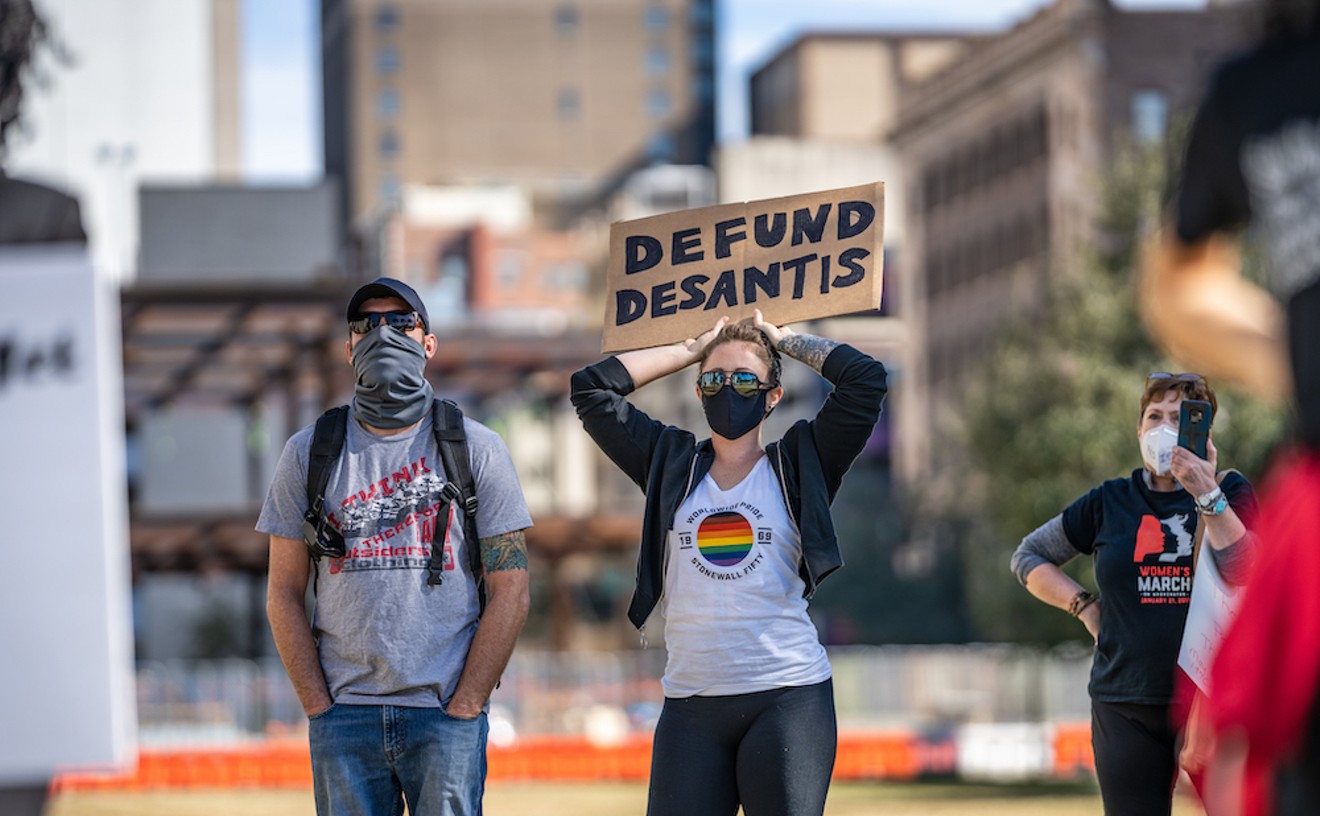Surrounded by political allies and law officers last Monday at the Polk County Sheriff’s Office, Gov. Ron DeSantis signed what was arguably the most controversial piece of legislation considered this session — House Bill 1, dubbed by its Republican sponsors the “Combating Public Disorder Act.”
DeSantis’ swift action to sign the so-called “anti-riot” bill Monday was the culmination of months of the governor’s efforts to solidify himself as an architect of law-and-order policies. DeSantis first laid out a framework for the legislation in September, long before the Senate gave final approval to the bill April 15 despite heart-rending objections from Black lawmakers.
“In September we were here with [Polk County] Sheriff [Grady] Judd hosting us, and we put out a vision for the state to maintain being a law-and-order state. We saw really unprecedented disorder and rioting throughout the summer of 2020, and we said that’s not going to happen here,” DeSantis said during the news conference Monday.
The legislation took effect with the stroke of DeSantis’ Sharpie and marked the governor’s response to nationwide protests after the May 2020 death of George Floyd in Minneapolis. The bill’s signing came one day before a jury found ex-Minneapolis Police Officer Derek Chauvin guilty of murdering Floyd, capping a weeks-long trial that captured the world’s attention and reignited debates about policing reform.
DeSantis, who is up for re-election in 2022 and is increasingly being floated by conservatives as a 2024 presidential contender, seized the moment Monday to again reject the idea of reducing law-enforcement spending.
“This bill actually prevents against local government defunding law enforcement. We’ll be able to stop it at the state level,” DeSantis said. “It’s an insane theory. It’s not going to be allowed to ever carry the day in the state of Florida.”
The set of laws creates a new felony crime of “aggravated rioting” that carries a sentence of up to 15 years in prison. Also put in place is a new crime of “mob intimidation,” which makes it unlawful for a group of three or more people “acting with a common intent” to use or threaten force in an attempt to “compel or induce, another person to do or refrain from doing any act or to assume, abandon, or maintain a particular viewpoint against his or her will.”
Tearing down statues or monuments also has become a felony crime in Florida under the laws.
By Monday afternoon, Democratic lawmakers and Agriculture Commissioner Nikki Fried, the lone statewide elected Democrat and presumed challenger next year to DeSantis, gathered on the steps of the Old Capitol to sound off on what they characterized as a death blow to First Amendment rights.
“Because of problems in our law-enforcement and criminal-justice system, this will be used to silence and harm Black and Brown Floridians,” House Minority Co-leader Bobby DuBose, D-Fort Lauderdale, said.
Other Democratic legislators painted the governor as hypocritical and selective in his approach to applying “law and order.”
“Not one time did he make mention of the Jan. 6 insurrection,” said Sen. Shevrin Jones, D-West Park, holding up an image of pro-Trump rioters storming the U.S. Capitol. “This is what he should have called out today.”
By Wednesday, predictions that the measure would be challenged in court were realized, with civil-rights attorneys filing a lawsuit challenging its constitutionality.
The measures “target protected speech under the First Amendment” and “retaliate against” protesters by imposing “excessive bail, fines, or cruel and unusual punishment as a means of hindering the speech of dissenting opinions,” Orlando lawyer Aaron Carter Bates wrote in the 22-page lawsuit.

